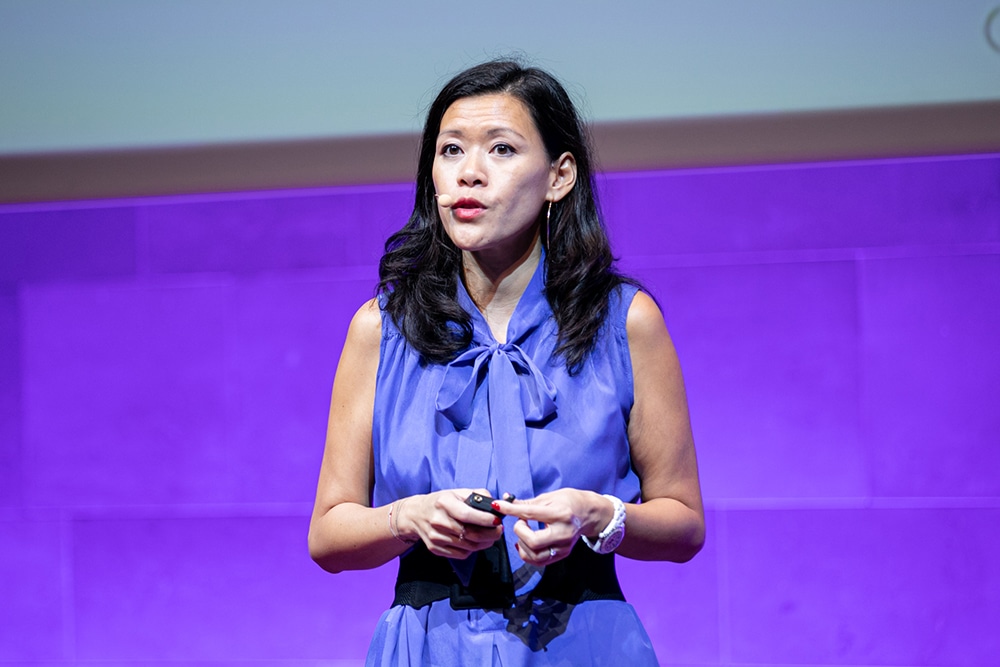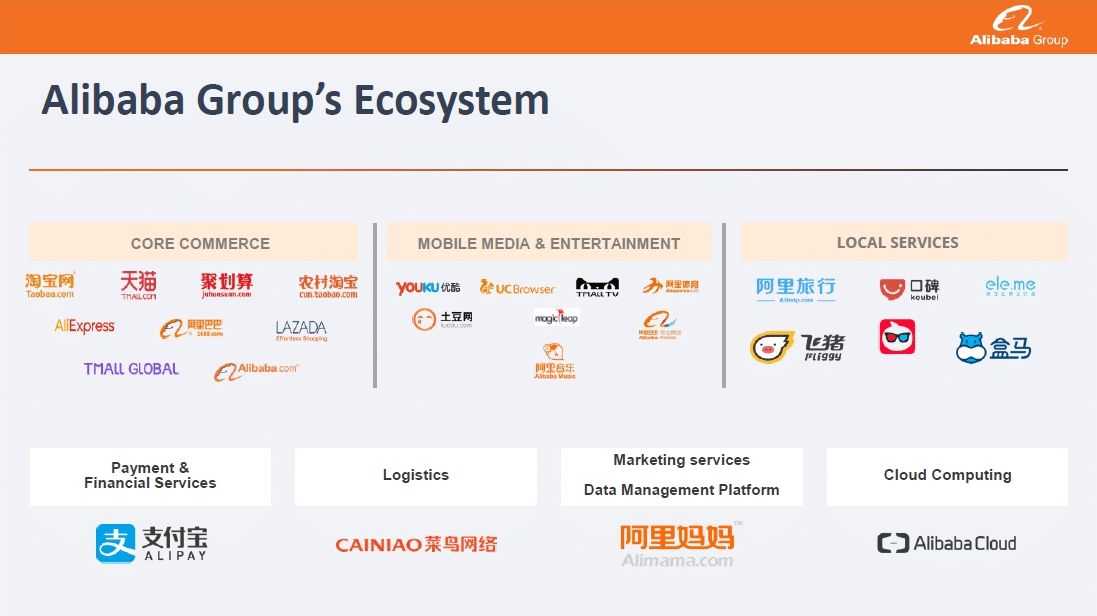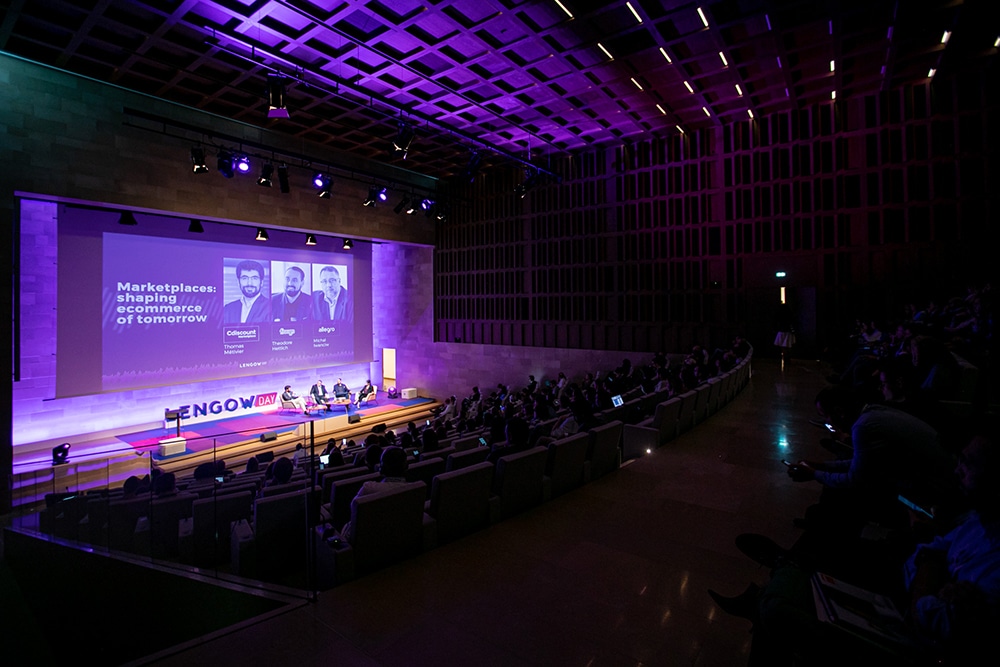Lengow Day 2019: key takeaways from this year’s event (part 2)
17/12/19
5'
Lengow Day 2019 was held on Tuesday 1st October. Dedicated to the future of (e)commerce, this year’s event brought together more than 550 international e-commerce players. After our blog recapping the conferences from Michelle Beeson (Forrester), Amy Vener (Pinterest), Albert Simsensohn (Facebook) and Ilya Shirokov (JOOM), discover the key takeaways from Laura Pho Duc (Alibaba), Thomas Métivier (Cdiscount), Theodore Hettich (Fruugo), Michal Iwanciw (Allegro).
When e-commerce meets ‘New Retail’
Introduced several years ago by Alibaba, the concept of ‘New Retail’ is now closely followed by Western brands and distributors who are keen to offer a seamless customer experience to consumers.
DaIn a conference entitled “When e-commerce meets ‘New Retail’”, Laura Pho Duc (Head of Marketing & Communication – Alibaba Group) presented the Alibaba ecosystem and shared the ‘New Retail’ actions led by the Chinese giant which will celebrate its 20th anniversary this year.

Over the years, to help brands build a qualitative shopping experience throughout the customer journey, Alibaba has developed an entire ecosystem to offer a ‘New Retail’ concept. This means merging online and offline commerce to offer a unique experience to buyers.
Jack MaWhen the moment comes, e-commerce will be reduced to just a traditional concept, and pure e-commerce activities will be replaced by New Retail
Alibaba Chairman
Through this ecosystem, Alibaba takes into consideration all the value chains of the purchasing process, from product supply to contact points, including experience, engagement, content, transactions, payments, delivery, logistics, fulfilment, as well as CRM, loyalty, etc.

To illustrate the concept of ‘New Retail’, Laura Pho Duc (Alibaba Group) takes two examples. First, the ‘New Retail’ partnership that Alibaba has entered with Starbucks to develop its online and offline presence in China. This partnership has enabled Starbucks to collaborate with various players in the Alibaba ecosystem, such as Ele.me, HEMA, Tmall, Taobao and Alipay, to improve the experience for Chinese customers.
Alibaba also allows local Chinese shops, the “Mom-and-Pop”, to digitize their activity. There are about 6 million stores across the country part of an Alibaba initiative called Ling Shou Tong (integrated retail). The mobile application allows them to order and replenish their stocks quickly and to collect data on products that they can then communicate to the brands.
More than a marketplace, Alibaba is today a key player in (e)commerce. The Chinese giant attracts attention every year with its Global Shopping Festival (also known as 11.11 or Singles’ Day), the world’s largest commercial event. On 11th November 2019, Alibaba announced a new spending record of 38.4 billion USD (compared to 30.7 billion USD in 2018).
According to Laura Pho Duc (Alibaba Group), brands that will succeed in (e)commerce will be those that integrate experiences across all customer contact points, spearheaded by the mobile phone that is an integral part of Chinese purchasing habits. 90% of transactions in China are carried out on this device.
Marketplaces shape the e-commerce of tomorrow
From China, to the US, to Europe, consumers and sellers connect through marketplaces. To discuss the future of marketplaces in the e-commerce ecosystem and the impact they will have, three industry players shared their visions and testimonies: Theodore Hettich (CSO – Fruugo), Thomas Metivier (Marketplace, International, Strategy and Innovation Director – Cdiscount) and Michal Iwanciw (International Business Director – Allegro.pl).

In 10 years, marketplaces have transformed the e-commerce ecosystem. As Theodore Hettich (Fruugo) points out, they have revolutionized the foundations of modern retail trade and are essential players in the ecosystem. Thomas Metivier (Cdiscount) agrees, referring to the technological transformation carried out by these marketing channels, which are now the main source of growth for e-commerce and operations in C2C, B2C or B1B as Michal Iwanciw (Allegro) adds.
While these platforms allow sellers to benefit from more traffic than on their online store, Thomas Metivier (Cdiscount) also highlights the richness of the offer proposed to buyers. Buyers are more confident purchasing on these platforms because of the quality of products and operational and customer experience. This trust requires a sense of security. Michal Iwanciw (Allegro) explained that 23% of Polish e-shoppers who want to buy outside their country generally face certain barriers to buying such as language, payments and customer service… According to him, honesty is therefore the key to offering a quality experience to consumers.
As for the selling price, Theodore Hettich (Fruugo) says that a good price will make the difference to the customer. In addition, the question of quality of service is now at stake in the act of purchase, as Thomas Metivier (Cdiscount) mentions. If merchants don’t make the right investments, they cannot achieve the level of quality required by marketplaces and consumers. More and more marketplaces monitor sellers to ensure customers are satisfied and offered a quality service. This is particularly related to respecting and improving up delivery times. Thomas Metivier (Cdiscount) and Theodore Hettich (Fruugo) advise sellers to adopt a fulfillment solution. To offer this quality of service, Theodore Hettich indicated Fruugo only allows 41% of sellers who register on Fruugo to sell their products.
Long dominated by the giants of the sector, European marketplaces now face global competition, thanks to their expertise in the European market. Theodore Hettich discusses the collaboration between Fruugo and Chinese merchants, helping them establish themselves in Europe, before adding that it is easier to compete in a European universe, than to try to give visibility to its products on a global scale.
Michal IwanciwWhen you think e-commerce, you have to think marketplaces
International Business Director – Allegro.pl
Thomas Metivier (Cdiscount) believes that one of the key points of differentiation from international giants is the close relationship that European marketplaces can have with sellers to help them succeed on their platform. According to him, consumers appreciate local platforms for the story they tell and the relationships they bring. His advice? Unite with various European partners and rely on the ecosystem of marketplace services to focus on the sale of products!
Check out the video of Lengow Day 2019:
Images: Ohé!
Your e-commerce library
E-commerce for Retailers
Learn moreE-commerce for Brands
Learn moreL'Oréal Luxe Success Story
Learn moreSign up for our newsletter
By submitting this form you authorize Lengow to process your data for the purpose of sending you Lengow newsletters . You have the right to access, rectify and delete this data, to oppose its processing, to limit its use, to render it portable and to define the guidelines relating to its fate in the event of death. You can exercise these rights at any time by writing to dpo@lengow.com

Trending Posts
Marketing channels
Where does Gen Z shop online?
Gen Z online shopping is transforming the digital marketplace, setting trends that redefine what it means to engage with brands…
16/04/24
9'
Marketplaces
The Top 10 Marketplaces in Europe
The e-commerce scene is a vibrant mix of marketplaces in Europe. These aren't just websites; they're bustling hubs where millions…
08/12/23
7'
Marketplaces
Lengow Now Fully Supports Zalando Logistics Solutions ZSS and ZRS
Zalando, one of Europe’s leading fashion marketplaces, continues to raise the bar with its advanced logistics and fulfillment programs. After…
12/12/24
4'
Marketplaces
How to win the Buy Box on Marketplaces (Amazon, Zalando, etc.)
What is the most important thing for marketplace sellers? Exactly, the Buy Box! If you don't have the Buy Box…
02/04/24
10'
Marketplaces
How to Sell on Temu? Best Tips
Emerging under the vast umbrella of PDD Holdings Inc., Temu has skyrocketed in popularity as a shopping sensation from China…
17/08/23
5'




